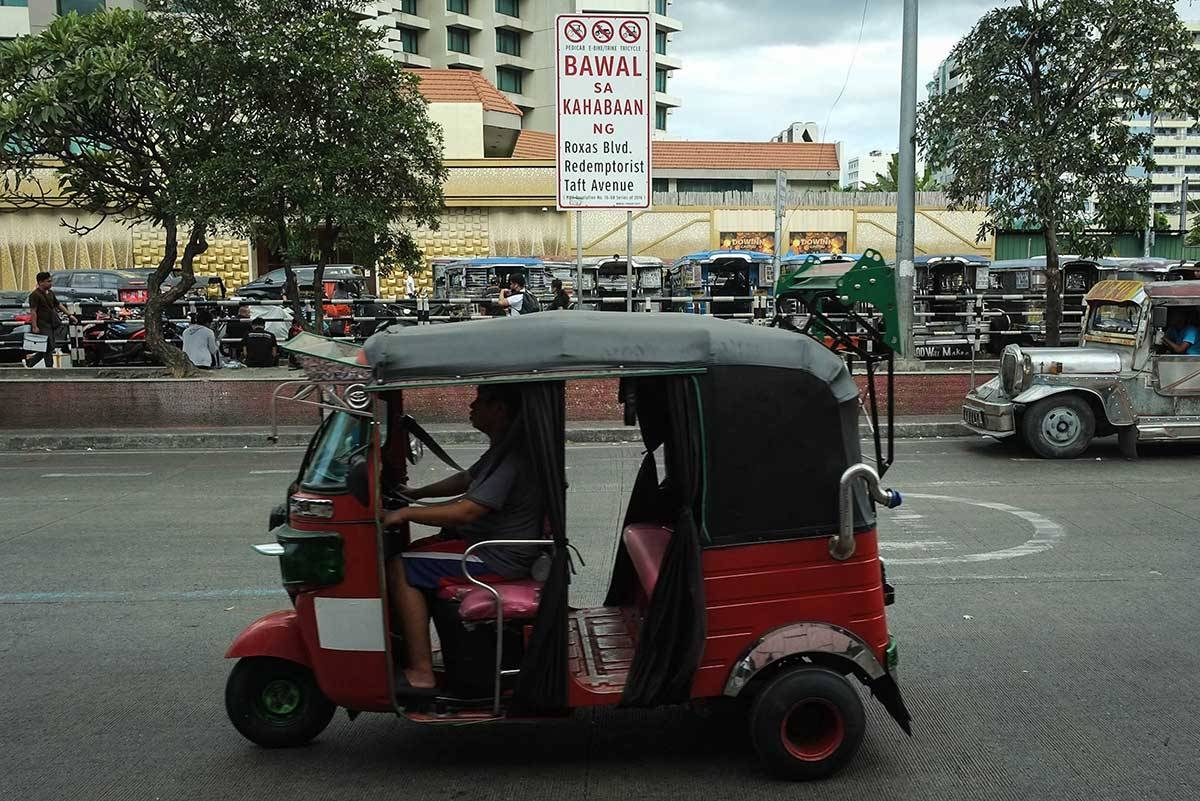(UPDATE) E-BIKES, e-trikes, and tricycles will no longer be allowed on national roads in Metro Manila starting April 15, according to a recent reminder from the Metropolitan Manila Development Authority (MMDA). The decision to implement this ban came after discussions with stakeholders, who have agreed to the measure.
The ban encompasses several major roads in the Metro Manila area, including Roxas Boulevard, Taft Avenue, South Luzon Expressway, Shaw Boulevard, Ortigas Avenue, Magsaysay Boulevard/Aurora Boulevard, Quezon Avenue/Commonwealth Avenue, A. Bonifacio Avenue, Rizal Avenue, Del Pan/Marcos Highway/McArthur Highway, Recto Avenue, President Quirino Avenue, Araneta Avenue, EDSA, Katipunan/C.P. Garcia Avenue, Southeast Metro Manila Expressway, Elliptical Road, Mindanao Avenue, and Marcos Highway.
This ban applies to various types of vehicles, such as e-bikes, e-trikes, tricycles, pedicabs, pushcarts, and kuliglig. Violators of the ban will be subject to a fine of P2,500.
It is important to note that tricycle drivers must possess a valid driver’s license. Failure to do so may result in the impounding of their vehicle if caught violating the ban.
According to data from the MMDA, electric vehicles were involved in 554 road accidents in 2023.
This decision to ban e-bikes and tricycles from national roads in Metro Manila has sparked discussions and debates among the public. While some support the ban as a means to alleviate traffic congestion and ensure road safety, others argue that it may negatively impact livelihoods, particularly of tricycle drivers who heavily rely on these vehicles for their daily income.
Proponents of the ban argue that allowing e-bikes, e-trikes, and tricycles on national roads poses significant risks to both the riders and other motorists. These vehicles often have limited speed capabilities, which can impede the flow of traffic and increase the likelihood of accidents. Additionally, their smaller size and slower speeds may make them less visible to other drivers, further increasing the risk of collisions.
Furthermore, the ban aims to address the issue of illegal modifications done to e-bikes and tricycles, which can compromise their safety and contribute to accidents. By restricting these vehicles to local roads, authorities can better regulate their operation and ensure compliance with safety standards.
However, critics argue that the ban fails to consider the needs and realities of those who rely on e-bikes and tricycles for transportation. In many areas, tricycles serve as a vital mode of transportation, especially in communities where access to public transportation is limited. Banning these vehicles from major roads may lead to increased travel times and inconvenience for commuters.
Moreover, some argue that instead of an outright ban, there should be stricter regulations and enforcement to address the issues associated with e-bikes and tricycles. This could involve implementing mandatory safety features, such as headlights and reflectors, and conducting regular inspections to ensure compliance.
It is also worth considering alternative solutions to mitigate the concerns raised by the presence of e-bikes and tricycles on national roads. This could include the creation of designated lanes or routes specifically for these types of vehicles, allowing them to operate safely while minimizing disruption to other motorists.
Ultimately, the ban on e-bikes and tricycles on national roads in Metro Manila starting April 15 reflects the ongoing efforts of the MMDA to improve road safety and alleviate traffic congestion. While the ban may have its drawbacks and controversies, it is crucial to prioritize the well-being and safety of all road users. The implementation of this ban will undoubtedly prompt further discussions and considerations on how to strike a balance between convenience, livelihoods, and road safety in the metro.
Source: The Manila Times








